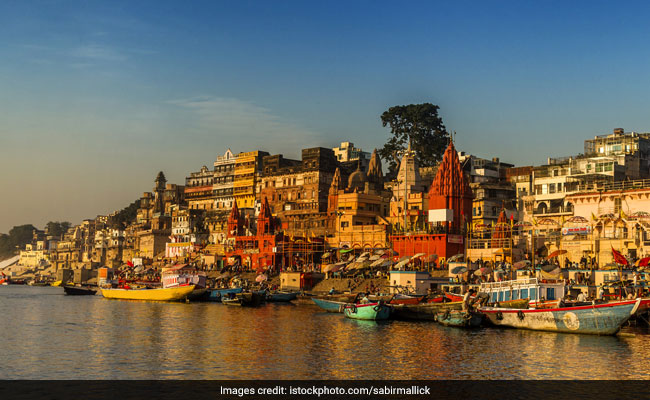The constituency has also been the stage for the electoral battles of two Prime Ministers.
A BJP stronghold for decades, the profile of the Varanasi Lok Sabha constituency was raised even higher in 2014 when it saw a high-stakes contest between the BJP's then prime ministerial candidate Narendra Modi and a relatively new entrant in politics, Arvind Kejriwal, who was trying to make a mark on the national stage after managing to form a government in Delhi the previous year.
The battle ended with Narendra Modi emerging victorious with a margin of over 3 lakh votes, but Mr Kejriwal of the AAP also managed to get over 2 lakh people voting for him.
History
Made up of five assembly seats, the Varanasi constituency is home to one of India's holiest cities. Since 1957, the BJP has won the seat seven times and the Congress six. The BJP has a near-perfect record since 1991, however, losing only once - to the Congress - in 2004.
The constituency has also been the stage for the electoral battles of two Prime Ministers - PM Modi and former PM Chandra Shekhar, who won the seat in 1977 by a staggering 47.9% margin. It is also one of only eleven constituencies in Uttar Pradesh that has never been won by the Samajwadi Party or the Bahujan Samaj Party.
2014 Strategy
Before PM Modi, the Varanasi seat was held by BJP veteran Murli Manohar Joshi. In 2014, the party as aware that its road to ousting the Congress and coming to power at the Centre would be through Uttar Pradesh, which sends 80 MPs to the Lok Sabha, the highest of any state. It was also aimed at influencing neighbouring Bihar and contests in its 40 Lok Sabha seats.
Having paved the way for the BJP to get an absolute majority on its own, the seat was picked by the Prime Minister in 2019 and he won against the Samajwadi Party's Shalini Yadav with a stunning margin of over 4.7 lakh votes.
Numbers Game
Hindus make up 75% of the total population in the Varanasi constituency, 20% are Muslim and 5% are from other religions. It has a 65% per cent urban population and 35% rural. Of the total number of residents, 10.1% are from the Scheduled Tribes and Scheduled Castes account for 0.7%.
The vote share of the winning candidates has fluctuated over the years. BJP had won with a 33.4% share in 1999 and Congress with a 32.6% share in 2004. In 2009, Murli Manohar Joshi achieved victory with a 30.5% vote share, which went up massively to 56.4% for Narendra Modi in 2014 and further to 63.6% in 2019.
Infra Development, What Next
The city has evolved significantly under PM Modi's tenure, with initiatives like the Kashi Vishwanath Temple corridor project reflecting its enhanced stature on India's political and cultural map.
With Varanasi going to the Congress in its seat-sharing deal with the Samajwadi Party for 2024, speculation is rife that Priyanka Gandhi Vadra may make her electoral debut from the constituency. While the BJP has also not officially announced the candidate for the seat, PM Modi is likely to contest from there again.






Leave a Reply